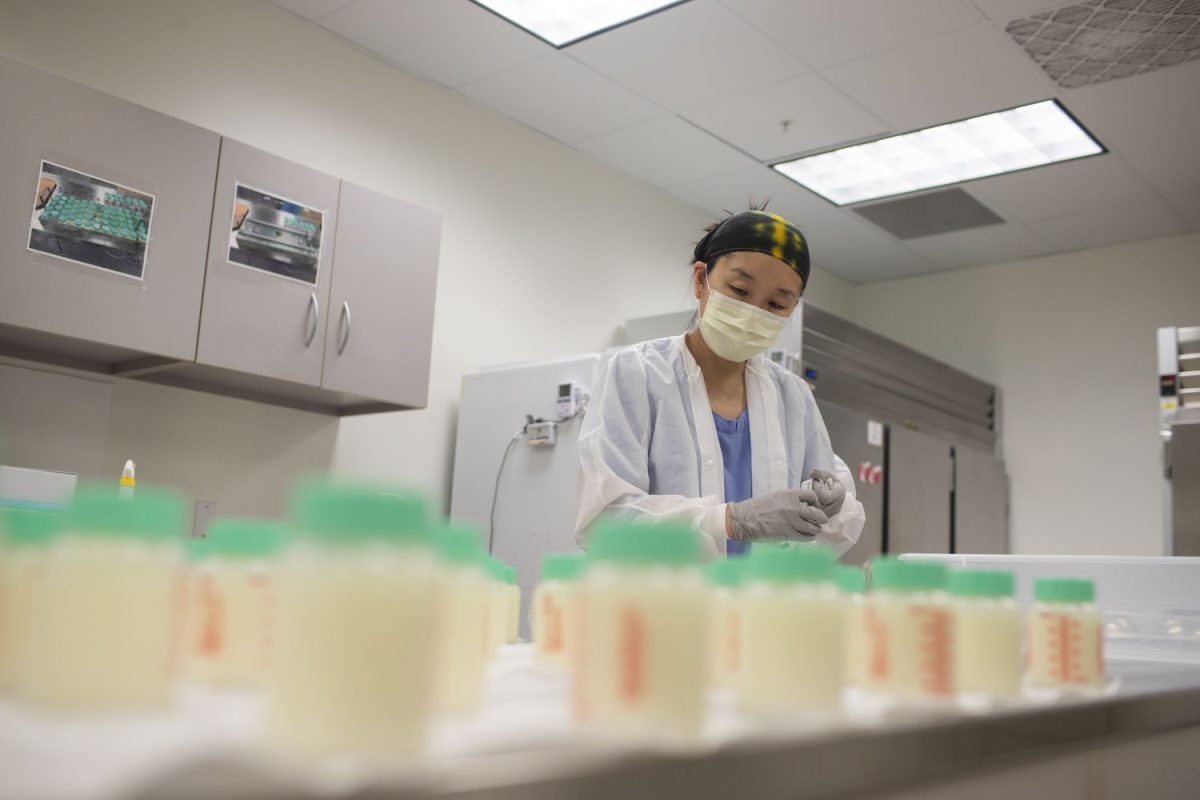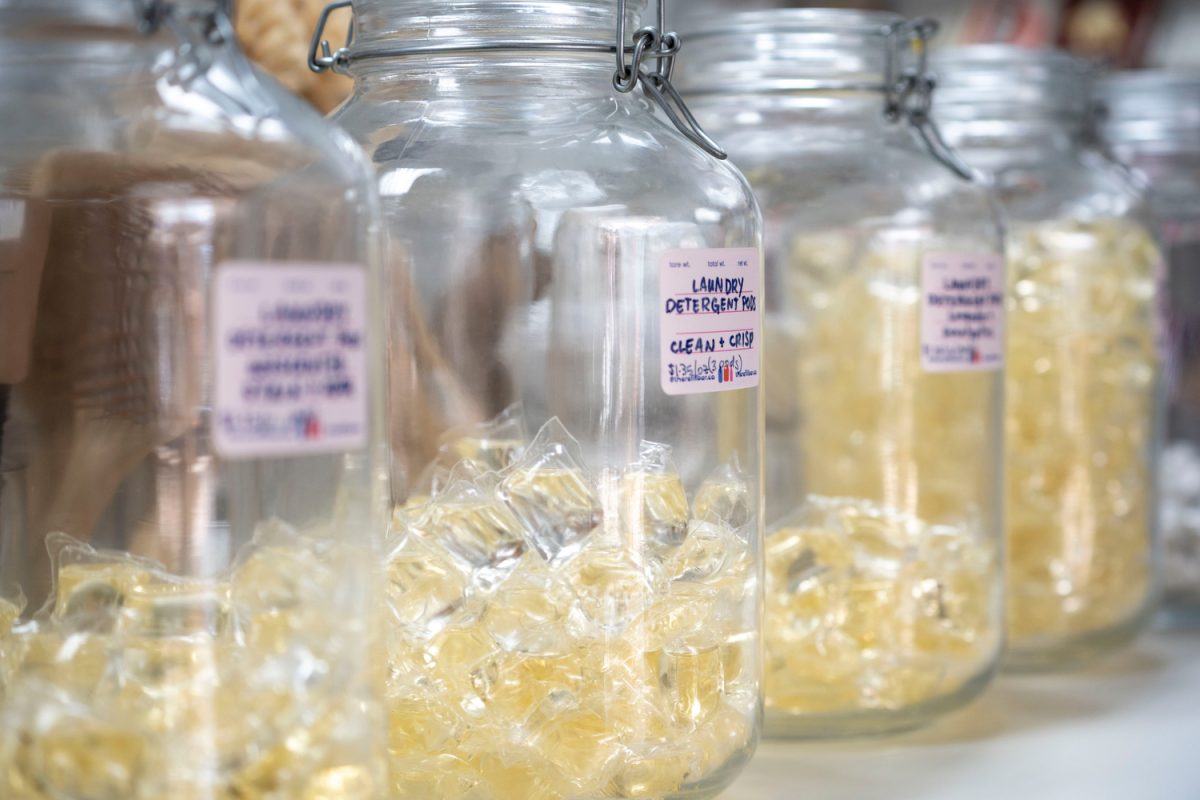For neonatal intensive care unit nurse and mother Stephanie Amundson, the importance of donating breast milk was not lost on her.
When she gave birth to her son Sebastian about a year ago, she was not producing enough breast milk for the first three weeks of his life. Amundson then made the decision to begin sourcing donor breast milk for her son.
Donating breast milk is a common practice, particularly for premature babies and infants whose mothers are unable to produce breast milk for a variety of reasons.
Tarah Colaizy, a UI Stead Family Department of Pediatrics professor of pediatrics in neonatology, said the primary benefit of donor breast milk is the reduced risk of necrotizing enterocolitis, a gut infection that can cause pneumonia, blood infections, and sepsis in premature babies.
Additionally, the antibodies and specialized sugars that fight infection found in human breast milk are often absent from donated baby formula, Colaizy said.
Colaizy said donor milk can increase neurological development in premature babies, and decrease the baby’s risk of infection.
The Mother’s Milk Bank of Iowa, located in Coralville, Iowa, allows mothers with an overabundance to donate their milk to babies in need.
Soon after Amundson became a mother, she was later diagnosed with a condition called hyperlactation, which meant she was producing an overabundance of breast milk.
“I was producing 100 ounces a day: more than twice the amount of milk that my Sebastian needed,” Amundson said.
As a NICU nurse, Amundson saw the value donated breast milk can bring to premature babies and mothers in need.
“It was really a full circle moment seeing donor breast milk being used for my patients and ending up using it for my own child and being able to give back,” Amundson said.
Heidi Baudhuin, milk bank coordinator at Mother’s Milk Bank of Iowa, said the process to donate breast milk is relatively simple.
Interested donors contact the milk bank and will go through a three-step screening process that ensures all milk received is as safe as possible for infants. They are screened for medications, HIV, hepatitis C, and other bloodborne pathogens.
Once donors are approved, they can donate in the comfort of their own homes and drop their milk off at any of the bank’s 43 drop-off locations in the Midwest, Baudhuin said.
Amundson donated over 5,000 ounces to the Mother Milk Bank of Iowa from July 2023 to October 2023.
Amundson said the center provides freezer bags needed to store the breast milk to keep the milk perserved before it is given to babies in need.
Once the milk arrives at the center, it goes through a pasteurization process, which heats the milk to kill any bacteria or viruses that may be present.
Colaizy said a lot of donors feel as if they are helping out another parent who isn’t able to produce enough milk for a sick infant.
“Breast milk is such a precious resource, and being able to feed another baby instead of throwing that milk away can be incredibly beneficial,” Colaizy said.
Baudhuin said a lot of babies born in the NICU are immunocompromised and the best source of nutrition is breast milk, as it can help protect against infection and inflammation while simultaneously boosting that baby’s immune system.
In 2023, the Mother’s Milk Bank of Iowa had a total of 239 donors and dispensed 252,488 ounces of milk, Baudhuin said.
Baudhuin said 74 percent of milk goes to babies in the hospital, while the other 26 percent goes to outpatient families.
“This milk is like liquid gold for families, and we need all the donors we can get,” Baudhuin said.
Colaizy said even a little milk can go a long way for these babies, as they often only eat a teaspoon a few times a day.
Amundson said as a NICU nurse, she saw mothers struggle for years trying to do everything they could to lactate and provide milk to their babies.
“This was a gift I had, and I wanted to make sure that my milk was going to families who needed it,” Amundson said. “It was this beautiful warm and fuzzy moment, and it made me feel really great.”
















